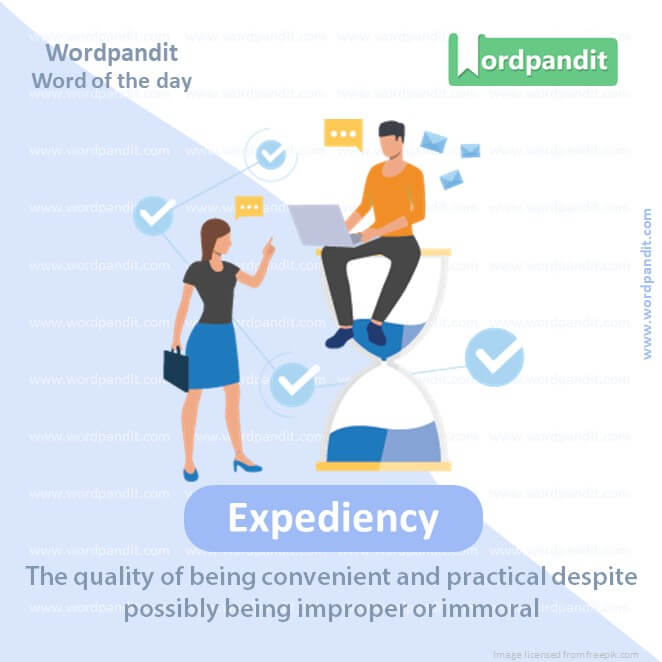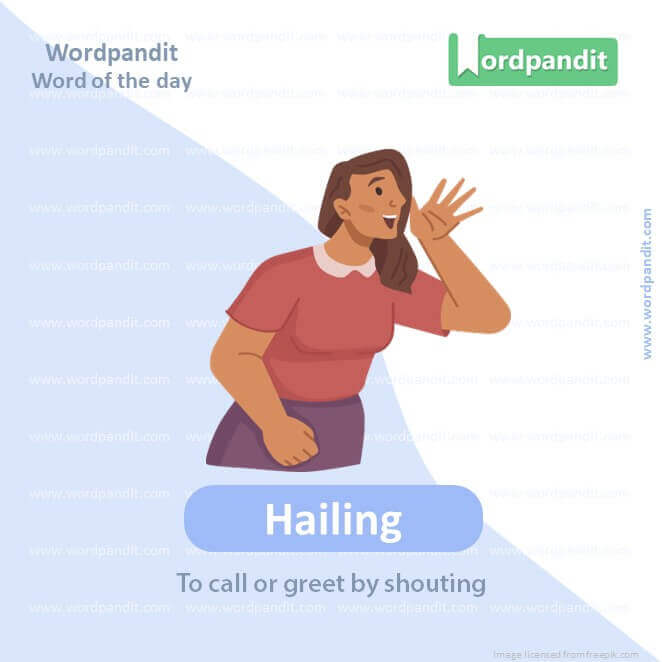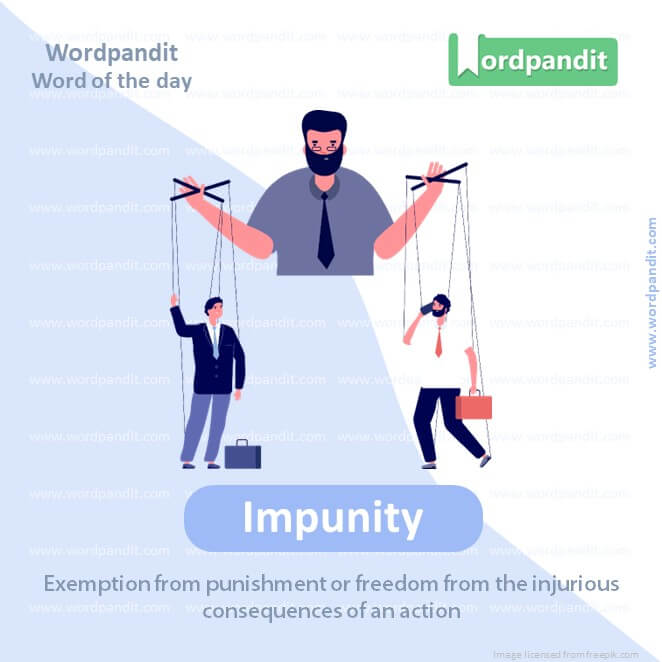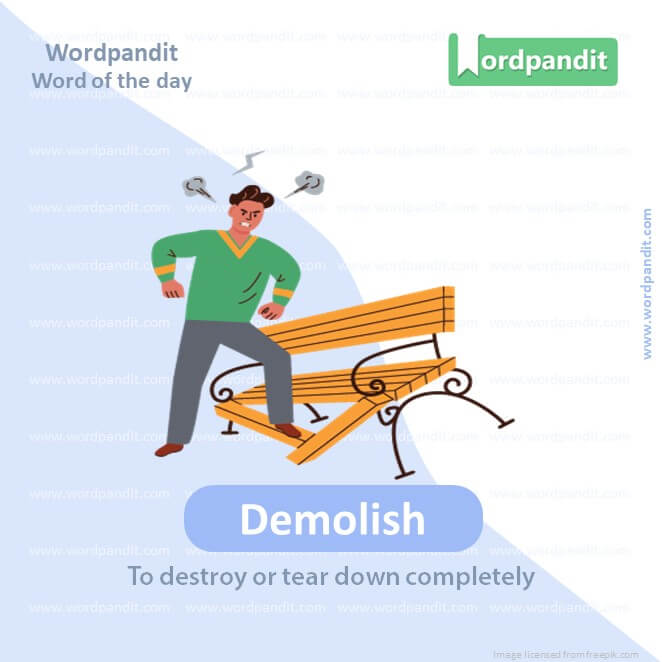Daily Vocabulary Words: List of Daily Used Words
Hi there. Welcome to this special section @ Wordpandit.
Our endeavour here is straightforward: highlighting important daily vocabulary words, you would encounter in The Hindu. This is your repository of commonly used words; essentially, we are posting a list of daily used words. Hence, this has significant practical application as it teaches you words that are commonly used in a leading publication such as The Hindu.
Visit the website daily to learn words from The Hindu.
WORD-1: SUBALTERN
CONTEXT: The study delves into subaltern narratives that have often been overshadowed in mainstream historical accounts.
SOURCE: The Hindu
EXPLANATORY PARAGRAPH: Imagine you’re playing with a big group of kids, and there are older kids who get to decide what games you all play. But, just below the older kids, there are some other kids who help make smaller decisions, like who gets which toy or where to sit. “Subaltern” is a fancy word to describe someone who’s important, but not the MOST important, kind of like those kids who are helpers, but don’t make the biggest decisions.
MEANING: A person holding a position just below a senior rank; often in the military (noun).
PRONUNCIATION: sub-ALL-turn
SYNONYMS: Deputy, assistant, junior, underling, subordinate, second-in-command, aide.
USAGE EXAMPLES:
1. The captain discussed the plan with his subaltern.
2. She served as a subaltern before getting her own command.
3. As a subaltern, he had a lot to learn about leadership.
4. The subalterns were tasked with organizing the troops.

WORD-2: EXPEDIENCY
CONTEXT: Critics argue that the decision was made more out of political expediency than genuine concern for public welfare.
SOURCE: The Hindu
EXPLANATORY PARAGRAPH: You know when you do something just because it’s the easiest or quickest way, even if it’s not the best or the nicest way? That’s what “expediency” means. It’s like choosing to wear rain boots because it’s raining, even if they don’t match your outfit.
MEANING: The quality of being convenient and practical despite possibly being improper or immoral (noun).
PRONUNCIATION: ex-PEE-dee-en-see
SYNONYMS: Convenience, practicality, advantage, usefulness, benefit, pragmatism.
USAGE EXAMPLES:
1. He chose the route out of expediency to save time.
2. The decision was made more for expediency than fairness.
3. They considered the expediency of using disposable plates for the party.
4. Sometimes, expediency trumps doing what’s right.
WORD-3: HUES
CONTEXT: As the festival commenced, the streets were painted in vibrant hues, reflecting the nation’s diverse cultural tapestry.
SOURCE: The Hindu
EXPLANATORY PARAGRAPH: Imagine a big box of crayons with lots of different colors. Each of those colors is called a “hue.” So, “hues” are just another word for colors!
MEANING: Different shades or colors (noun).
PRONUNCIATION: hyooz
SYNONYMS: Shades, tones, tints, colors, pigments, tinges, dyes.
USAGE EXAMPLES:
1. The sunset painted the sky in beautiful hues of pink and orange.
2. She chose several hues of blue for her bedroom.
3. The garden was filled with flowers of various hues.
4. The artist used a palette of bright hues for his painting.
WORD-4: QUADRUPLED
CONTEXT: In the past decade, the number of tech startups in the city has quadrupled, marking a significant shift in its economic landscape.
SOURCE: The Hindu
EXPLANATORY PARAGRAPH: Imagine you have 1 toy, and then you get 3 more just like it. Now, you have 4 toys in total! When something becomes four times bigger or increases by that much, we say it has “quadrupled.”
MEANING: To become four times as much or as many (verb).
PRONUNCIATION: KWAD-roo-pled
SYNONYMS: Multiplied, augmented, increased, magnified, enlarged, amplified, boosted.
USAGE EXAMPLES:
1. The price of the toy quadrupled in just a year.
2. Their business quadrupled in size after the advertisement.
3. He was shocked to find out that the number of students had quadrupled.
4. With the new investment, the company’s profits quadrupled.
WORD-5: COROLLARY
CONTEXT: The rise in air pollution is a direct corollary of increased vehicular traffic and unregulated industrial activities.
SOURCE: The Hindu
EXPLANATORY PARAGRAPH: “Corollary” is like a bonus idea that comes after another idea. Let’s say you’re talking about how it’s raining. The corollary, or bonus thought, might be that there will be puddles to jump in afterward.
MEANING: A natural consequence or result that follows from another idea (noun).
PRONUNCIATION: CORE-oh-larry
SYNONYMS: Consequence, result, outcome, effect, repercussion, byproduct, aftermath.
USAGE EXAMPLES:
1. The corollary of eating too much candy is having a stomachache.
2. With great power comes the corollary of great responsibility.
3. A corollary of the team’s hard work was their championship win.
4. The rise in temperature had the corollary of increased beach visits.
WORD-6: CORROBORATING
CONTEXT: The evidence presented by the investigative agency, corroborating the suspect’s involvement, has been challenged by the defense.
SOURCE: The Hindu
EXPLANATORY PARAGRAPH: Think of when you tell a story, and your friend says, “Yes, that’s true! I saw it too!” Your friend is “corroborating” your story, which means they are backing it up or supporting what you said.
MEANING: To confirm or give support to a statement, theory, or finding (verb).
PRONUNCIATION: kuh-ROB-or-ay-ting
SYNONYMS: Confirming, verifying, validating, substantiating, supporting, backing up, attesting.
USAGE EXAMPLES:
1. The evidence was corroborating his alibi.
2. Witnesses are needed for corroborating the defendant’s story.
3. The photos were helpful in corroborating her version of events.
4. The scientist spent years corroborating his theory with experiments.

WORD-7: HAILING
CONTEXT: Hailing from a small village in Tamil Nadu, the young prodigy astonished everyone with her exceptional mathematical abilities.
SOURCE: The Hindu
EXPLANATORY PARAGRAPH: Hailing is when tiny bits of ice fall from the sky, like frozen raindrops. It’s like when you catch snowflakes on your tongue.
MEANING: To call or greet by shouting (verb).
PRONUNCIATION: HAY-ling
SYNONYMS: none (specific term)
USAGE EXAMPLES:
1. Look, it’s hailing outside! Let’s watch from the window.
2. Hailing can make the ground look white, just like snow.
3. Hailing can be noisy when it hits the roof.
4. We need to wear our warm coats when it’s hailing.

WORD-8: YANK
CONTEXT: The sudden yank of the safety harness ensured the climber didn’t fall, prompting a review of safety measures.
SOURCE: The Hindu
EXPLANATORY PARAGRAPH: “Yank” is when you pull something quickly and with a lot of force. It’s like when you pull a rope in a game of tug-of-war.
MEANING: To pull with a sudden, sharp movement (verb).
PRONUNCIATION: yank
SYNONYMS: Pull, tug, jerk, drag, snatch, grab, wrench.
USAGE EXAMPLES:
1. She had to yank the door open because it was stuck.
2. He yanked his hand away when he touched the hot pan.
3. The child yanked the toy out of his friend’s hand.
4. I had to yank the weeds out of the garden.

WORD-9: IMPUNITY
CONTEXT: Human rights organizations have expressed concern over instances where officials act with seeming impunity, highlighting the need for stringent checks.
SOURCE: The Hindu
EXPLANATORY PARAGRAPH: Imagine you eat a whole jar of cookies, and nobody gets mad at you or tells you off. That means you did it with “impunity” – when you do something without getting in trouble or facing bad consequences.
MEANING: Exemption from punishment or freedom from the injurious consequences of an action (noun).
PRONUNCIATION: im-PYOON-i-tee
SYNONYMS: Immunity, exemption, freedom, privilege, protection, license, dispensation.
USAGE EXAMPLES:
1. He stole the candy with impunity because no one was watching.
2. The dictator ruled with impunity, never facing consequences for his actions.
3. Criminals shouldn’t be allowed to act with impunity.
4. The journalist reported the truth with impunity in a country that valued free speech.

WORD-10: DEMOLISH
CONTEXT: The ancient temple, which had stood for over a thousand years, was unfortunately demolished to make way for a new highway, sparking outrage among heritage activists.
SOURCE: The Hindu
EXPLANATORY PARAGRAPH: Demolish is like when you’re playing with building blocks, and you knock down the tower you just built. It means to break something into pieces or tear it down.
MEANING: To destroy or tear down completely (verb).
PRONUNCIATION: dih-MOL-ish
SYNONYMS: destroy, wreck, flatten, tear down, ruin
USAGE EXAMPLES:
1. The wrecking ball was used to demolish the old building.
2. He accidentally stepped on his sandcastle and demolished it.
3. Demolish means to make something go away, like when we clean up our toys.
4. The construction crew will demolish the old bridge to build a new one.
Vocabulary Grammar
Learning a new language encompasses two key aspects: vocabulary and grammar. ‘Vocabulary grammar’ refers to the powerful combination of understanding new words and their usage according to grammatical rules, together creating fluent and accurate language usage. Here’s an effective approach to learning ‘vocabulary grammar’.
At the forefront of ‘vocabulary grammar’ learning is identifying common and practical words. With each new word, understand its part of speech (verb, noun, adjective) to use it correctly in a sentence, adhering to grammar rules. This process ensures that you’re not only building your word reservoir but also leveraging them grammatically.
To solidify ‘vocabulary grammar’, regular reading is vital. When you read, you see new words and their grammatical context. The exposure to ‘vocabulary grammar’ in a natural setting aids in a more intuitive understanding of language.
Another excellent strategy for ‘vocabulary grammar’ is writing exercises. Regular writing using new vocabulary within a grammatical framework helps reinforce both your word knowledge and the grammatical understanding, building confidence and proficiency.
Making use of modern resources can vastly improve the learning process of ‘vocabulary grammar’. Language learning apps, websites, and online courses can offer comprehensive learning materials and exercises combining vocabulary and grammar, thus making learning more interactive and effective.
It’s important to remember that mastering ‘vocabulary grammar’ is a gradual process that requires patience. Regular practice, continual learning of new words, vigorous reading, and writing, as well as consistency, form the ingredients for successful ‘vocabulary grammar’ mastery.
In conclusion, the journey into ‘vocabulary grammar’ learning should be viewed as an exciting adventure towards articulating thoughts and ideas more effectively. With structured learning, application, and a dash of dedication, mastering ‘vocabulary grammar’ can not only be an achievable task but also a fulfilling one.









